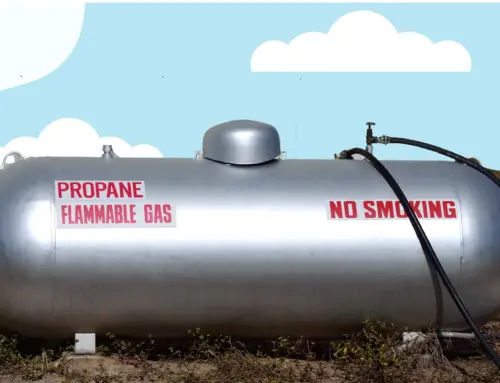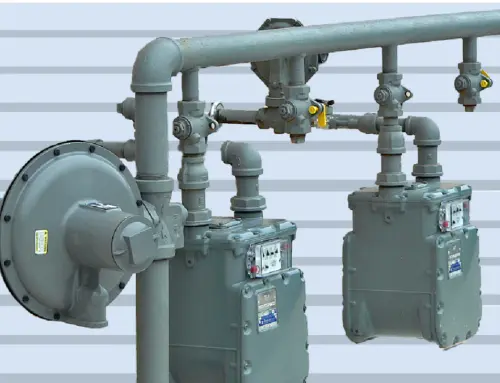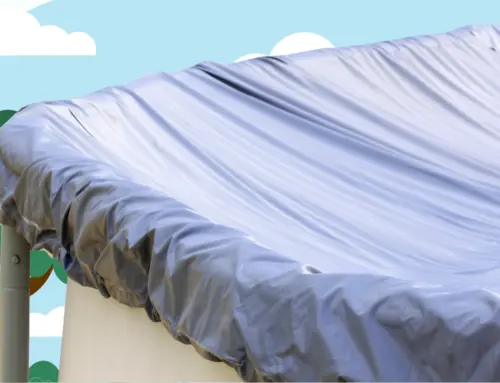How to Tell You Have a Gas Leak: Symptoms, Signs and Solutions
by Tyler Castle
20 min read
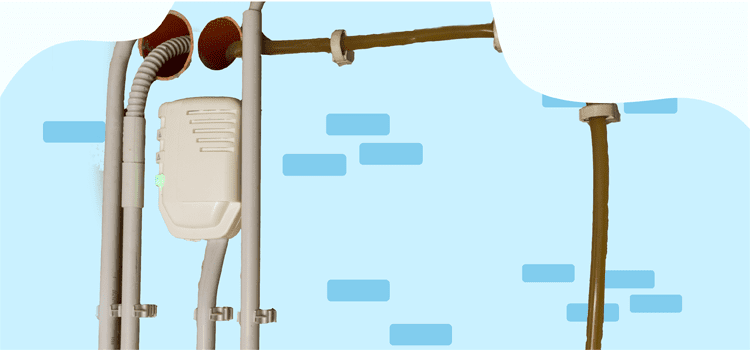
In our energy-dependent world, natural gas plays a crucial role in powering homes. According to the Natural Gas Supply Association, natural gas heats nearly 70 million homes in the United States. Like any energy source, there’s always potential for safety risks. In the case of natural gas, this energy choice can cause natural gas leaks.
EnvironmentalAmerica.org reports that a gas leak occurs every 40 hours in the U.S. To prioritize safety, it’s essential to understand natural gas leaks and how to prevent them. Let’s get into it!
What Is a Gas Leak?
A gas leak occurs when natural gas or another gaseous substance unintentionally escapes from its containment, such as a pipeline, storage tank, or appliance, into an area where it shouldn’t be present. Gas leaks can occur both indoors and outdoors, posing risks to safety, health, and the environment.
According to ScienceDirect, over 200,000 natural gas leaks require emergency response each year, costing U.S. fire departments $564 million annually due to gas leaks.
The next highest percentage of reported fires involved liquefied petroleum gas. Proportionally, incidents involving LP-Gas were more common in reported home fires than in non-home fires.
Gas leaks are preventable with routine inspections, proper appliance maintenance, and gas leak detectors. Recognizing the signs of a leak, such as a rotten egg smell (from added odorants), hissing sounds, or unexplained increases in gas bills, is crucial for safety. If a leak is suspected, immediate evacuation and professional assistance are necessary.
Types of Gas Leaks
There are several types of gas leaks every homeowner should be aware of. First, natural gas leaks are most common in residential and commercial areas where natural gas is used for heating, cooking, and energy. Natural gas is composed mainly of methane, a colorless, odorless, and highly flammable gas that is the main component of natural gas.
Another common gas leak type is propane gas leaks. These leaks often occur in rural areas where propane is stored in outdoor tanks and used as an alternative energy source. Lastly, industrial gas leaks can involve various gases (e.g., methane, carbon dioxide, or toxic gases like ammonia) in factories, refineries, or chemical plants.
What causes this leak?
Understanding what causes a gas leak is paramount in mitigating potential risks associated with natural gas usage. Gas leaks can occur based on a variety of factors, ranging from equipment malfunctions to human errors. The most common causes of gas leaks are aging or corroded pipelines, or improper installation.
Other factors like poorly fitted or damaged valves, and manufacturing of gas-related equipment can contribute to this risk. Be sure to be aware of these issues and regularly check your gas supply and lines to avoid risk.
How to Tell if You Have a Gas Leak
If you think you have a gas leak in your home, there are several signs you need to be on the look out for. You can tell if you have a gas leak if:
- You’re Seeing Dead plants: Gas leaks can kill plants due to the lack of oxygen in the soil.
- You Smell Rotten Eggs: The most common indicator of a gas leak, as natural gas is odorless but has a chemical added to give it a strong, sulfur-like smell.
- You Hear a Hissing sound: A noticeable hissing noise near gas lines or appliances can indicate a leak.
- You See a White Mist or Fog: A cloud of fog is visible and can be an indication of a leak from a gas line.
- You See Bubbles in Water: If you see bubbles forming in puddles near gas lines, it could mean gas is escaping underground.
- You Have a High gas bill: A sudden spike in your gas bill without explanation could be a sign of a leak.
- You Exhibit Physical Symptoms of Carbon Monoxide Poisoning: Dizziness, headache, nausea, or shortness of breath can occur with exposure to gas. Your pets may feel the same symptoms too, which is a good hint that something in the room is causing the ailments.
What Does Gas Smell Like When It Is Leaking?
Natural gas is inherently odorless, but utility companies add a chemical called mercaptan to give it a distinct, recognizable scent, which is not a natural characteristic of the gas itself. This smell is often described as rotten eggs, sulfur, or sewage-like. The purpose of this added odor is to help people detect leaks quickly. Recognizing this smell is vital for prompt detection. Knowing this characteristic can save you and your loved ones from a future gas leak.
If you notice this smell indoors or around gas lines, it’s a strong sign of a gas leak and should be treated as an emergency.
What to do if you have a leak
If you suspect a gas leak, take immediate and decisive action for your safety and those around you. Evacuate the premises, ensuring everyone moves to a safe distance away from the potential hazard. Avoid turning on light switches or using electricity, as this can ignite gas.
Once you’re at a safe location, promptly contact emergency services to report the leak. Do not re-enter the building until professionals have deemed it safe.
What NOT to do
If you find yourself amid a gas leak, it is crucial to be aware of actions to avoid for your safety. First, do not use any devices or conduct any electricity, as sparks from these sources can potentially ignite the gas. Secondly, refrain from attempting to locate the source of the leak or attempt to fix it on your own.
Never ignore the distinct smell of gas; if detected, leave the premises immediately. Additionally, avoid using open flames or using any appliances. Do not light matches or cigarettes, as they pose a significant fire hazard. Do not use a cell phone or open a garage door. Both can create a spark that could ignite the gas.Never smoke or have an open flame around a gas smell. Open flames can immediately ignite leaking gas, causing a fire or explosion.
How to detect a leak
Detecting a gas leak is a crucial aspect of ensuring safety in environments using natural gas. Various methods exist for gas leak detection, ranging from specialized electronic devices to simple home techniques. One of the things you can do to check for a gas leak in your home is to conduct a soapy water test:
- Start by gathering your materials for your test; you’ll need water, soap, and a dish.
- Mix your soap of choice with water to form a solution and pour your mixture into a squirt bottle or eyedropper.
- Brush, wash, or spray your solution over the area you suspect is leaking.
- Wait a few minutes and if you see bubbles forming around the area you’ve sprayed, you have a gas leak.
Or Install a Natural Gas Leak Detector
Natural gas is commonly detected using catalytic (Pellistor) or infrared (NDIR) sensors, both of which are designed to identify gas leaks with high accuracy. Here’s what you need to know:
Catalytic (Pellistor) Sensors rely on two small beads—one active and one inactive. When natural gas comes into contact with the active bead, it causes a combustion reaction, raising the temperature of the bead. The sensor detects a gas leak by measuring the difference in temperature between the two beads. This method is effective for detecting combustible gases but requires oxygen to function properly.
Infrared sensors work by emitting infrared light across a sample of air. Certain gases, like natural gas (methane), absorb light at specific wavelengths. When gas is present, the sensor detects a decrease in light transmission, indicating a leak. Infrared sensors are highly reliable, can operate in oxygen-depleted environments, and are ideal for continuous monitoring of flammable gases.
If you have a carbon monoxide detector at home, it won’t detect natural gas or natural gas leaks. You need to install a separate gas leak detector. Why the confusion? Many people assume that CO detectors cover all gas-related risks, but they don’t. Carbon monoxide and natural gas are two separate threats, requiring separate detectors for proper home safety.
Is a Gas Leak Detector a Solution Better Than the Soap Water Test?
Both gas leak detector solutions and the soapy water test can be used to detect small gas leaks, but they vary in effectiveness, reliability, and convenience:
The soapy water method is best for quick, informal checks for household connections and appliances. Using the soapy water test is the best option for DIY checks because it’s simple, inexpensive, and effective at identifying leaks by forming bubbles where gas escapes.
Professional gas leak detectors are better for more precise detection for complex or sensitive systems. Gas leak detectors are also ideal for larger homes where multiple rooms are unoccupied for a long amount of time and where gas leaks might occur.
When comparing gas leak detection methods, professional gas leak detector solutions are generally more effective and reliable than the soap water test. Professional detectors, such as catalytic (Pellistor) or infrared (NDIR) sensors, offer higher sensitivity and are better suited for detecting small or low-pressure leaks.
In contrast, the soap water method, while simple and inexpensive, is less sensitive and may not detect minor leaks, making it less reliable for ensuring safety. Therefore, for accurate and dependable gas leak detection, especially in critical applications, professional gas leak detector solutions are recommended.
What Is a Slow Gas Leak?
A slow gas leak is a small, gradual escape of gas from pipes, appliances, or gas line connections. Unlike major leaks, which can be immediately noticeable due to strong gas smells, hissing sounds, or a sudden drop in gas pressure, slow leaks may go undetected for long periods. These leaks often release small amounts of gas that build up slowly over time, potentially leading to health risks, increased utility bills, or carbon monoxide buildup without obvious warning signs.
Slow Gas Leak Symptoms
- Subtle Smell: A faint, occasional rotten egg odor.
- Dying Plants: Indoor or outdoor plants near gas lines may wilt or die due to exposure.
- Higher Gas Bills: An unexplained rise in gas usage or costs without changes in consumption.
- Weak Pilot Lights: Pilot lights that frequently go out or burn unevenly (yellow flames instead of blue).
- Headaches: A common symptom of gas exposure, headaches can occur due to low levels of oxygen in the air
- Fatigue: Feeling tired, lethargic, or weak can be a sign of a gas leak
- Shortness of breath: A lack of oxygen in the air can cause breathing difficulties
- Dizziness: A reduction in oxygen in the air can cause dizziness
- Nausea: Nausea and vomiting can be a symptom of carbon monoxide poisoning
Are All Gas Leaks Slow?
Not all gas leaks are slow. Gas leaks can vary based on the severity, location, and cause. They typically fall into two categories:
- Slow (Small) Gas Leaks: Which often result from minor wear, loose connections, or corrosion. These leaks may not cause immediate danger but can worsen over time if left unchecked.
- Fast (Major) Gas Leaks: Fast gas leaks happen when a pipe or connection is severely damaged. These leaks are often accompanied by strong gas smells, hissing sounds, and visible damage (e.g., ruptured lines). They pose a high risk of explosions and fires and require immediate evacuation and professional assistance.
Common Gas Appliances That Are Prone to Leaks
There are several gas appliances that are prone to gas leaks. Here are some of the most common to keep an eye on:
1. Gas Stoves and Ovens
Gas stoves and ovens have burner valves, gas line connections, and faulty igniters that are the most prone to leaks. Signs of gas leaks from this appliance include persistent gas smell near the stove, weak or uneven flames (yellow instead of blue). Gas leak prevention from a gas stove or oven includes regularly checking and cleaning burner components and ensure the gas line is secure.
2. Water Heaters
Water heaters have gas valves, pilot lights, and venting systems that are the most prone to gas leaks in your home. Signs of a gas leak from your water heater include a faint gas odor near the heater, your pilot light frequently going out, and uneven heating. To combat these problems, schedule regular maintenance and inspect gas connections and vents.
3. Furnaces
Furnaces are prone to leaks in the gas valves, burners, and heat exchangers. Common signs of gas leaks from furnaces include a gas smell near the furnace, weak airflow, yellow or flickering pilot light. For prevention, annual HVAC inspections to detect leaks or malfunctioning components are ideal.
4. Gas Fireplaces
Gas fireplaces are by far one of the most prone appliances to gas leaks from their gas valve, connections behind the unit, and pilot light. Signs of a gas leak from your fireplace include a gas odor near the fireplace or difficulty igniting the pilot light. To prevent gas leaks by this appliance, have a technician inspect the fireplace and gas lines regularly.
5. Clothes Dryers (Gas-Powered)
Gas-powered dryers are prone to leaks because of their connections to gas lines and burners. Common signs of a gas leak from a clothes dryer include gas smells near the dryer, delayed ignition, or improper heating. To prevent leaks from these appliances, be sure to inspect gas connections and clean lint filters to prevent ventilation issues.
6. Gas Grills
Has grills can be hazardous if they’re not used in the correct way. Gas grills come with flexible gas hoses, valve connections, and burners that are most prone to leaks. Signs include gas odor around the grill, visible cracks in hoses, or difficulty igniting burners. Gas leak prevention includes inspecting hoses and fittings regularly, especially after winter storage.
7. Gas Meters and Outdoor Lines
Gas meters and outdoor gas lines are perhaps the most prone to gas leaks in your home. Main gas line connections, shutoff valves, and outdoor pipes are the most common places where gas leaks can occur. Signs of a gas leak from gas meter include the smell of rotten egg smell, hissing noise, dead vegetation near the gas line. Gas leak prevention from gas meters includes ensuring regular inspections by your utility provider and avoid digging near gas lines.
Physical signs and health risks of gas leaks
If you have a gas leak in your home, you’re exposing yourself to various health risks such as carbon monoxide poisoning. Gas leak symptoms and the physical symptoms of carbon monoxide poisoning include dizziness, nausea, fatigue, and headaches. If exposed to high concentrations of natural gas, individuals may experience difficulty breathing and chest pain.
Depending on the speed of the gas leak, these symptoms can start quickly. Be sure to be attentive to any sudden onset of symptoms. Prolonged exposure to leaks can lead to more severe health issues or even unconsciousness.
How to prevent future leaks
Preventing future gas leaks requires proactive measures and vigilant maintenance practices. Regular inspections of gas appliances, pipelines, and connections are crucial to identifying potential issues before they escalate. Ensuring proper installation by qualified professionals and following manufacturer guidelines during setup can prevent faulty connections and equipment malfunctions.
Additionally, prioritizing routine maintenance such as promptly addressing any wear and tear, contributes to preventing gas leaks. Lastly, preparing a disaster plan is important in case you face a gas leak.
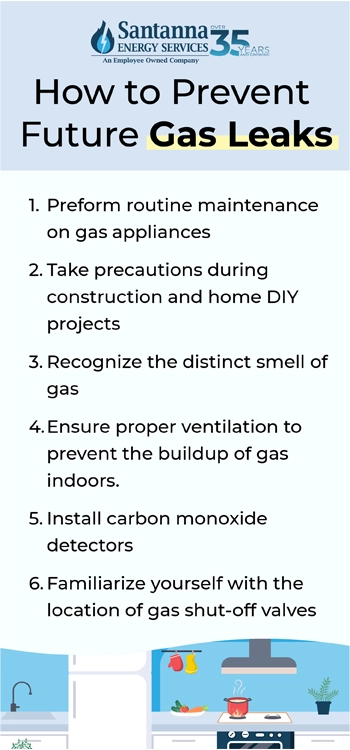
What to do after facing a leak
Once you receive the “go-ahead” from professionals that it is safe to re-enter a building after a gas leak, proceed cautiously. Before entering, ensure there are no lingering odors of gas, and if any smell persists, refrain from going inside.
Open windows and doors to ventilate the area effectively. Avoid using electronic devices or switches until you are certain the environment is secure. If you had turned off the gas supply during the incident, wait for a professional to inspect and safely restore the service.
How long does it take to fix a gas leak?
The duration of fixing a gas leak depends on various factors. This includes the severity of the leak, your location, and what needs repairs. Typically, a qualified professional, such as a licensed plumber or gas technician, is responsible for fixing a gas leak. Do not attempt to fix it yourself if you are not a professional.
It takes only a few hours to resolve a minor leak, while more complex issues may take a day or two to complete. Ensuring the safety of the affected area is what professionals focus on when fixing a gas leak. Do not rush the job, as this can lead to future errors down the road.
My house smells like gas but there are no signs of a leak…
If your house smells like gas but there are no visible signs of a leak, it’s crucial to take immediate action to ensure safety. Even if you can’t see the leak, the smell could indicate a potential issue with your pilot light or system. Ventilate the area by opening windows and doors to disperse any lingering gas. Refrain from using electronic devices or creating sparks, and call professionals for help.
No matter the issue, it’s important to not take these issues lightly. Exercise caution and safety during these situations.
Can a House Blow Up from a Gas Leak?
A house can explode from a gas leak if gas accumulates in a confined space and encounters an ignition source. A house can explode when gas builds up to a flammable concentration. Common ignition sources when there’s a gas leak include light switches, static electricity, pilot lights which can trigger an explosion.
Who to Call for a Gas Leak in the House
If you suspect a gas leak, your first step should be to contact your local utility company, followed by a call to a licensed plumber. Professional plumbers are trained to locate and repair gas leaks, obtain necessary permits, and coordinate city inspections to ensure safety.
While utility companies can confirm the presence of a gas leak, they typically do not pinpoint its source or perform repairs. Since working with gas lines is dangerous, it’s essential to rely on certified experts for the job. Licensed plumbers can manage all your gas piping needs with expertise.
What Happens When You Report a Gas Leak?
When you report a gas leak, utility companies and emergency responders follow a specific process to ensure your safety and resolve the issue. Here’s a breakdown of what typically happens:
1. Emergency Response and Investigation
Once you report the leak, your utility company or emergency services will dispatch a technician to the location as quickly as possible. In the meantime, you may be instructed to evacuate the area, avoid using electronics, and stay clear of potential ignition sources.
Upon arrival, the technician will use gas detection equipment to assess the air for gas concentration levels and confirm the presence of a leak.
2. Evacuation and Safety Measures
If the gas concentration is high, evacuation may be extended to surrounding properties for public safety. Emergency personnel may shut off the main gas supply to your property or the affected area to prevent further leakage. You may be temporarily restricted from re-entering the building until the leak is fully contained and the air is safe.
3. Locating the Leak
Technicians will inspect gas lines, connections, and appliances to pinpoint the source of the leak. This may involve checking indoor and outdoor areas, including gas meters, pipes, and buried gas lines.
4. Repairing the Leak
If the leak is on the utility company’s side (such as at the gas meter or main supply line), the utility will typically handle repairs. If the leak is on your property (e.g., within appliances or household gas lines), you’ll be responsible for hiring a licensed gas plumber to perform the necessary repairs.
5. Final Inspection and Restoration
After the repairs are completed, a technician will perform a final inspection to verify that there are no further leaks and that the gas system is functioning safely. Once cleared, the gas supply will be restored, and you’ll be allowed to return to your home or business.
How much does it cost to repair a gas leak?
The average cost to repair a gas line is around $598, though it can vary between $272 and $935, depending on factors such as the type of materials used and the length of the damaged pipe.
For example, longer gas lines or those requiring specialized materials, like corrosion-resistant piping, will typically increase the cost. Additional factors, such as the complexity of the repair, the location of the leak (e.g., underground or inside walls), and local labor rates, can also influence the final price.
To get an accurate estimate tailored to your situation, it’s best to consult a licensed gas plumber who can assess the damage and provide a detailed quote.
Are Gas Leaks Covered By My Homeowners Insurance?
It depends. Homeowners insurance may cover gas leaks under certain conditions, such as if the leak leads to a covered event like an explosion, which is typically included in standard policies. Coverage may also apply if a natural disaster—like a windstorm, hail, or fire—damages a gas line or appliance.
However, there are cases where insurance won’t cover gas leaks, including:
- Damage caused by slow, unnoticed leaks.
- Leaks resulting from poor maintenance of aging appliances.
- Leaks due to improper installation of an appliance.
- Leaks caused by uncovered natural disasters (e.g., floods, earthquakes, or mudslides).
The Environmental Impacts of Gas Leaks
According to the U.S. Energy Information Administration (EIA), around 35% of the United States’ total energy-related CO2 emissions in 2022 came from the use of natural gas for energy production.
Many tiny leaks in gas pipes under streets can last for months or years, causing major problems which can add up to hazardous effects over time. Leaked gas is lost energy that can’t be used for heating or cooking which results in a significant loss of energy.
Leaked gas contains methane, a powerful greenhouse gas that worsens global warming which contributes to long-term environmental impacts. From the gas wells to pipelines near homes, leaks need attention at every stage of the gas supply system.
Is Natural Gas Safe in the Home?
Natural gas is generally safe to use in the home when properly installed and maintained. It is a reliable energy source for heating, cooking, and powering appliances. However, like any energy source, it comes with risks if safety measures are not followed.
Natural gas safety tips
Being vigilant about gas leaks is the first step in natural gas safety. Here are some of our favorite tips that can contribute to a secure home:
- Install a carbon monoxide detector: you can detect early on any indications of a potential gas leak.
- Know how to turn off your natural gas valve: this can help you regularly inspect your gas appliances.
- Keep your gas burners and oven tops clean: this can help improve the efficiency of your appliances and reduce the risk of potential fires.
- Keep flammable materials away from gas appliances: Storing materials such as cleaning products and paper towels away from gas appliances can prevent fires and other hazards.
If you’re interested in learning more strategies to protect your home from natural gas, visit our blog for more tips!
Understanding the intricacies of natural gas leaks is paramount for maintaining a safe and secure environment. Remember, safety is a collective effort, and staying informed is the first step toward creating a secure living space!
Santanna Energy Services is a supplier of earth-friendly natural gas plans in the United States, providing services to Illinois, Indiana, Pennsylvania, Michigan, and Ohio. We provide a wide range of energy services and products to meet the needs of both residential and small business customers. Our mission is to provide innovative and cost-effective energy solutions that will help our customers achieve their energy goals. With over 35 years of experience, we are committed to creating life-long relationships by providing quality service to customers, communities, and employees.
Tyler is an experienced energy professional, having worked for Santanna Energy Services, for the past four years. He is passionate about renewable energy and believes that diversifying the energy grid is the key to a sustainable future. Tyler is dedicated to supplying consumers with the best possible energy solutions and works diligently to make sure that Santanna can deliver the highest quality service.



